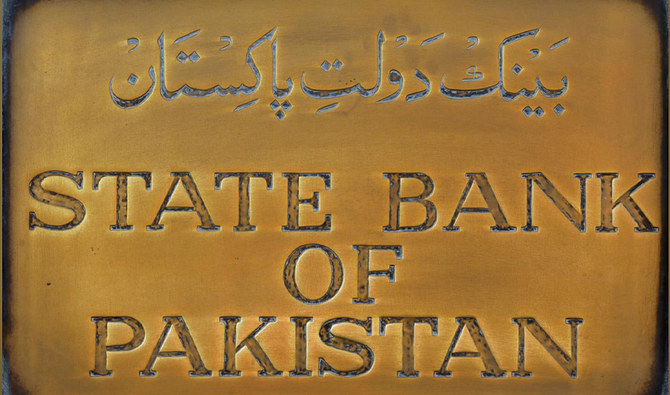KARACHI: Pakistan posted current account surplus after four long years, data released by the State Bank of Pakistan (SBP) showed on Tuesday, as the country’s measures to discourage imports started bearing fruit.
According to the SBP, the external account recorded a current account surplus of $99 million in October 2019.
Prime Minister Imran Khan has already said the country’s financial situation is moving in the right direction.
Previously, Pakistan had posted the current account surplus back in March 2015.
Khan also reiterated his claim about the health of Pakistan’s economy in a Twitter post on Tuesday, saying: “Pak economy finally heading in the right direction as more of our economic reforms bear fruit: Pak’s current account turned into a surplus in Oct 2019, for the first time in 4 yrs. The current account balance was +$99 mn in Oct 2019 compared to -$284 mn in Sept 2019 & -$1,280 mn in Oct 2018.”
He added: “For the first 4 months of our fiscal year our current account deficit has fallen by 73.5% compared to the same period last fiscal yr. Our exports of goods & services in Oct 2019 rose 20% over the previous month and 9.6% over Oct 2018. I congratulate our exporters & encourage them to do more.”
When Prime Minister Khan’s administration assumed the country’s political power back in 2018, Pakistan had posted its highest current account deficit of $19.89 billion in fiscal year FY18 that was reduced to $13.83 billion with a 30 percent reduction in FY19.
Experts maintain this owed to the government’s decision to cut down the import of luxury items.
The country’s cumulative current account deficit declined by 74 percent during the first four months of the current fiscal year between July and October (4MFY20) to $1.47 billion against the $5.56 billion recorded during the same period of the last fiscal year (4MFY19).
The balance of payments turned positive due to the decline of 21 percent of the total imports along with a 10 percent increase in the total exports on year on year (YoY) basis.
The four-month current account deceit is 1.6 percent of the country’s Gross Domestic Product (GDP) which was 5.5 percent during the same period of the last fiscal year (FY19).
Financial analysts expect the current account deficit of the country to cool down at about $5 billion.
“This year, the current account deficit is expected to settle at about $5 billion versus the earlier budgetary expectations of $7-8 billion,” Khurram Schehzad, senior financial analyst and CEO of Alpha Beta Core, a financial advisory firm, told Arab News.
However, economists also expressed concern over the substantial drop in the imports “of mainly capital goods” which, they said, was “leading to the closure of industries or deindustrialization,” in the words of Dr. Shahida Wizarat.
“If the trade deficit is reducing on the back of diminishing raw material or capital good imports that have become more expensive due to the devaluation of Pakistani rupee, it means the industries are closing down in the country. This also happened in the 1990s. There is no reason to celebrate trade deficit reduction in such a context,” she added.
Experts also called for import substitution through localization of industries driven by indigenous factors.
“It is about time we thought of economic growth that should be driven by indigenous factors by encouraging export-oriented investments and reducing the cost of doing business, starting with the reduction in interest rate,” Schehzad commented.
The country’s central bank is scheduled to announce its monetary policy on Friday.

















